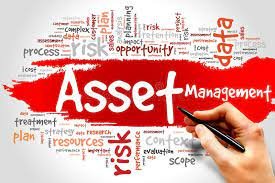What’s the first thing that comes to your mind when considering updating your business assets and resources? Perhaps it’s the traditional banking loan, but the endless installments and higher interest rates may scare you off.
Is there another reliable yet affordable financing option available? Absolutely Yes! With asset financing on your side, you no longer need to take financial stress to grow your business.
Asset finance is a great way to obtain the necessary funds, required to purchase the assets to take your business to the next level. It’s a convenient way to access the equipment, machinery, and vehicles you need to run your operations smoothly.
However, it’s essential to consider the type of assets you’re acquiring before making any decisions. When doing so, you’ll come across two major financing types, namely soft assets and heavy assets.
Let us help you decide between heavy asset finance and soft asset finance in UK. Keep reading to find out more!
Heavy Assets
Regarding commercial tasks, heavy assets like inventory, equipment, machinery, and vehicles are crucial investments. These high-quality items are often expensive, requiring a financing option that’s just as substantial. If you’re looking to secure funding for heavy assets, be prepared to submit collateral that’s just as valuable as the items themselves.
Soft Assets
Soft assets refer to the intangible assets that a business possesses, like its brand image, goodwill, and intellectual property. Such assets can’t be physically touched or seen but are invaluable for the company’s success.
Soft assets include features like patents, trademarks, copyrights, and trade secrets. They work as a competitive advantage for the company and must be nurtured accordingly.
Now you understand how both assets work, it’s time to know what sets them apart.
- Nature Of Collateral
In soft and heavy asset financing, the nature of collateral depends on the financed amount. The collateral is usually intangible for soft assets, making it challenging to secure.
On the other hand, heavy asset financing consists of tangible assets. They’re valuable enough to be repossessed if needed. However, in most cases, the borrower purchases to claim the asset at the end of the term.
- Level Of Risk
Soft asset finance usually carries a higher risk due to the intangible nature of the assets. That’s why it’s potentially hard to recover the collateral. In contrast, heavy asset finance poses a lower risk as it’s easy to recover physical assets.
- Lifespan Of Assets
With soft assets comes the software and licenses with shorter lifespans. Therefore, they require frequent and efficient updates and maintenance. However, heavy assets like equipment and vehicles share a longer lifespan and are more durable in operation. It results in better efficiency with less frequent replacements.
- Depreciation And Value
The value of soft assets tends to fluctuate due to advancements in technology. It makes soft asset financing a potentially risky endeavour for new business owners. In contrast, heavy assets have more straightforward valuations based on depreciation rates.
- Purpose And Intent
As we know, both soft and heavy asset serves different purposes and intentions. Soft assets share the same level of technology, software, and innovativeness. However, heavy assets are more likely to contradict. For instance, if you wish to update your workplace technology, you’ll prefer incorporating tech-savvy equipment. Or, when trying to expand your transport network, you’d request more vehicles.
- Usage Considerations
You must recognize each type of asset’s unique capacity and potential to maximize its value. For instance, the financing of soft assets aims to facilitate access to intellectual property and encourages the utilization of technology to foster business expansion. Conversely, heavy assets possess a longer lifespan and offer a guarantee of serving your needs for years to come.
- Financing Structures
Financing structures are one of the most pivotal considerations between the types of assets. As for the soft assets, they’re more varied and flexible due to their unique yet intangible nature. But, heavy financing may be costly since it includes well-versed valuation methods. Therefore, it’s hard to cope with heavy machinery financing in UK unless you’re financially stable.
Final Verdict!
As an entrepreneur, you must be knowledgeable about asset financing when determining your business’s financial options. Soft and heavy asset finance are two important aspects to understand in this process. By educating yourself, you’ll be better equipped to make an informed and profitable financing decision.



